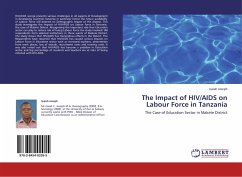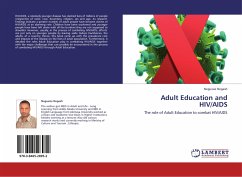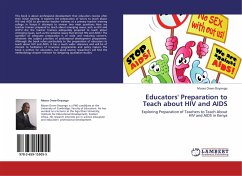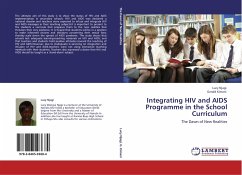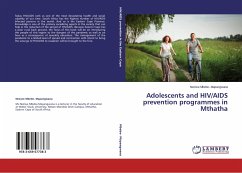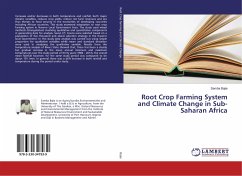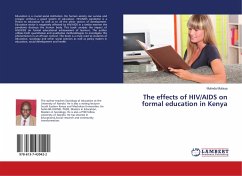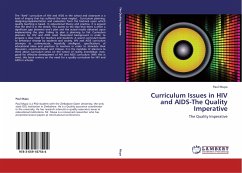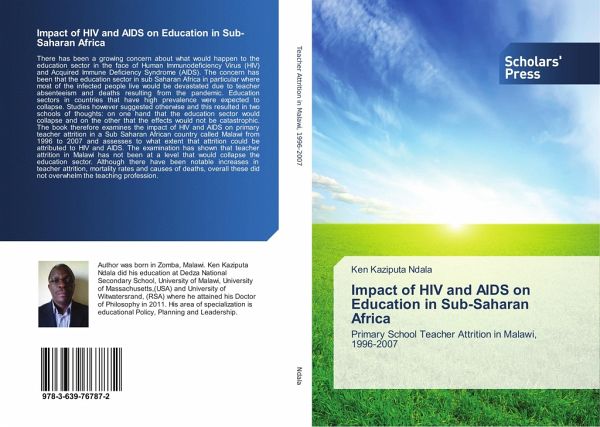
Impact of HIV and AIDS on Education in Sub-Saharan Africa
Primary School Teacher Attrition in Malawi, 1996-2007
Versandkostenfrei!
Versandfertig in 6-10 Tagen
59,99 €
inkl. MwSt.

PAYBACK Punkte
30 °P sammeln!
There has been a growing concern about what would happen to the education sector in the face of Human Immunodeficiency Virus (HIV) and Acquired Immune Deficiency Syndrome (AIDS). The concern has been that the education sector in sub Saharan Africa in particular where most of the infected people live would be devastated due to teacher absenteeism and deaths resulting from the pandemic. Education sectors in countries that have high prevalence were expected to collapse. Studies however suggested otherwise and this resulted in two schools of thoughts: on one hand that the education sector would co...
There has been a growing concern about what would happen to the education sector in the face of Human Immunodeficiency Virus (HIV) and Acquired Immune Deficiency Syndrome (AIDS). The concern has been that the education sector in sub Saharan Africa in particular where most of the infected people live would be devastated due to teacher absenteeism and deaths resulting from the pandemic. Education sectors in countries that have high prevalence were expected to collapse. Studies however suggested otherwise and this resulted in two schools of thoughts: on one hand that the education sector would collapse and on the other that the effects would not be catastrophic. The book therefore examines the impact of HIV and AIDS on primary teacher attrition in a Sub Saharan African country called Malawi from 1996 to 2007 and assesses to what extent that attrition could be attributed to HIV and AIDS. The examination has shown that teacher attrition in Malawi has not been at a level that would collapse the education sector. Although there have been notable increases in teacher attrition, mortality rates and causes of deaths, overall these did not overwhelm the teaching profession.




